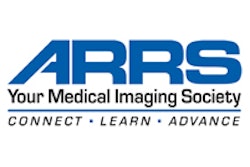WASHINGTON, DC - Radiologists are now required under the Mammography Quality Standards Act (MQSA) to report imaging results using the lexicon of the Breast Imaging Reporting and Data System (BI-RADS). But are other clinicians getting the messages that radiologists are providing? If research from the Yale University School of Medicine in New Haven, CT, is an indication, they may not be.
"One of our private practice breast surgeons came to us one day very exasperated (telling us) that her schedule and her office were being backlogged by BI-RADS 3 patients who were being referred to her by their clinicians," said Dr. Stacy Vitiello of the department of diagnostic radiology at Yale.
To determine referring clinicians' understanding of the BI-RADS categories and the resulting patient management, the Yale researchers mailed 571 surveys in August 1999 to physicians, nurse practitioners, and midwives with privileges at their institution. Vitiello presented the study results May 11 at the centennial meeting of the American Roentgen Ray Society.
The survey consisted of 11 multiple choice and fill-in questions, querying participants on practice demographics, knowledge of BI-RADS, and their management of patients with a final assessment of BI-RADS 3 (probably benign). Of the surveys, 88 (15%) were returned. The 13 respondents receiving less than one mammogram report per week were excluded from the study.
Of the 75 remaining respondents, 53% were internists, 32% were ob/gyns, 12% were surgeons, and 3% were other. Sixty-two percent were community-based practitioners, while the rest were in academic practices.
Forty-seven percent were not aware that radiologists were required to report mammograms using BI-RADS terminology; 64% had received no information or education regarding BI-RADS.
Twenty-one percent and 35% were comfortable and somewhat comfortable, respectively, with BI-RADS reports. Thirty-two percent indicated that they were not comfortable with the BI-RADS reports. Only 12% were very comfortable with the reports. Doctors who received more than 10 reports per week were more likely to be comfortable with BI-RADS than those who received one to five reports, Vitiello said.
When asked about the percentage of patients with a BI-RADS 3 assessment being found to have breast cancer, 57% of the clinicians chose the correct answer of 1%-2% incidence, as indicated by published literature. Choosing among the other multiple-choice options, 22% indicated the 10% selection, while 3% designated the 50% choice. Not all respondents filled out this section of the survey.
The results weren't any better for patients with a "BI-RADS 5 -- highly suggestive of malignancy" category. Only 51% of respondents supplied the correct 90% rate, while 35% believed that 50% was the incidence. Five percent of respondents chose the 10% selection, while 7% indicated 1%-2%.
For patients with a "BI-RADS 3 -- probably benign" final assessment, 93% of clinicians followed the radiologist's recommendation for short-term radiologic follow-up. However, 62% of clinicians send BI-RADS 3 patients for further work-up, including physical examination in their own offices, consultation with a breast surgeon, or both.
The most common factors affecting decisions in the management of BI-RADS 3 patients were personal history of previous biopsies or other cancers, and family history. Interestingly, the doctors who received more than 10 reports per week were more likely to refer BI-RADS 3 patients to a breast surgeon or bring patients in for physical exams, Vitiello said.
In any event, many unnecessary office visits and inappropriate referrals to breast surgeons are taking place, Vitiello said.
"Referring a patient with a 1%-2% chance of malignancy to a breast surgeon is really not the intention of BI-RADS 3," Vitiello said.
It may be the responsibility of individual radiologists to educate clinicians, as they don't be appear to be getting this education from other sources, she added.
By Erik L. Ridley
AuntMinnie.com staff writer
May 11, 2000
Let AuntMinnie.com know what you think about this story.
Unneeded breast surgeon referrals caused by clinician ignorance of BI-RADS terms
Latest in Breast
OncoRes secures $19M on path to U.S. trial
February 13, 2026
Nonsurgical management rising for low-risk DCIS cases
February 10, 2026




















